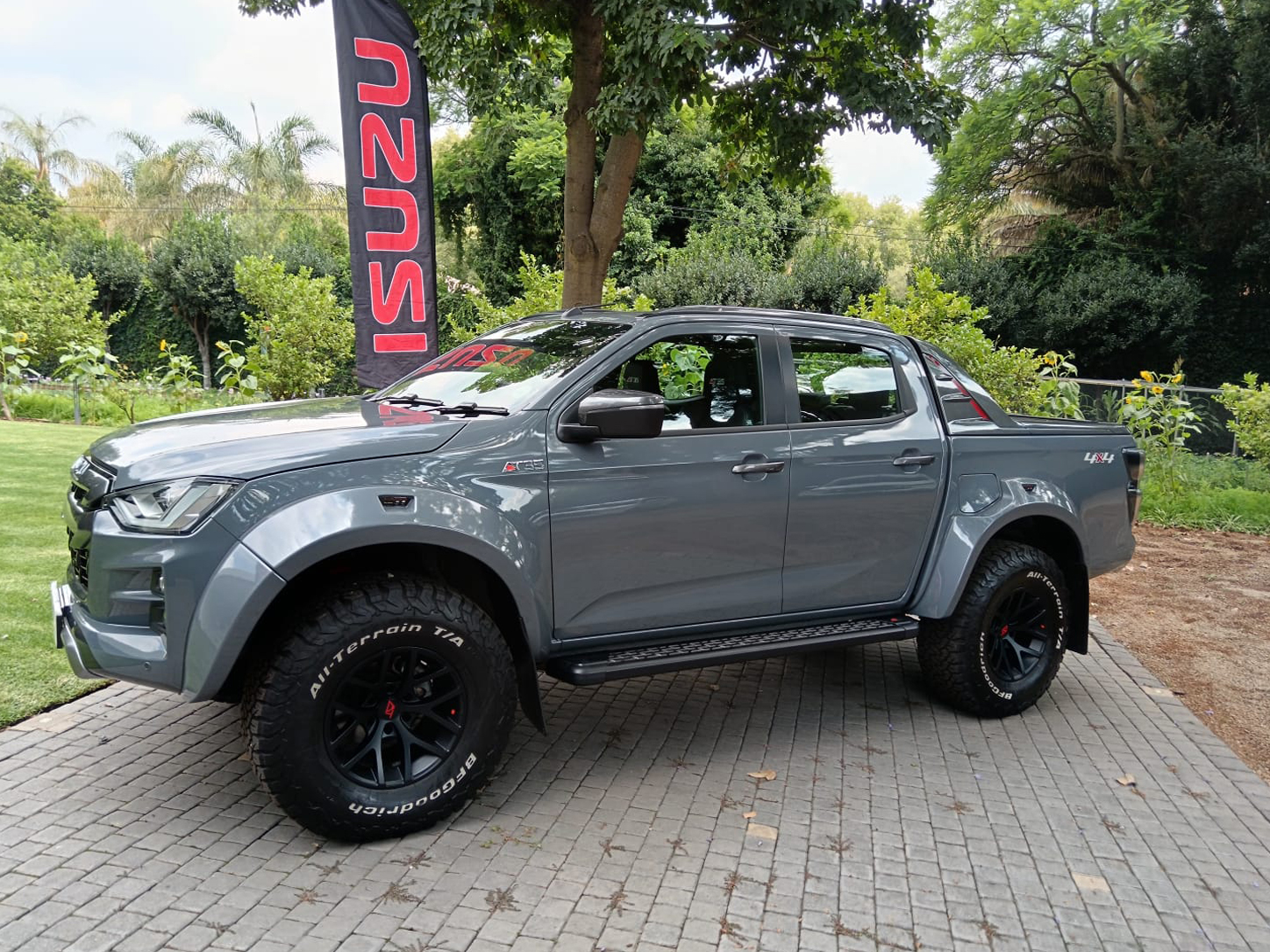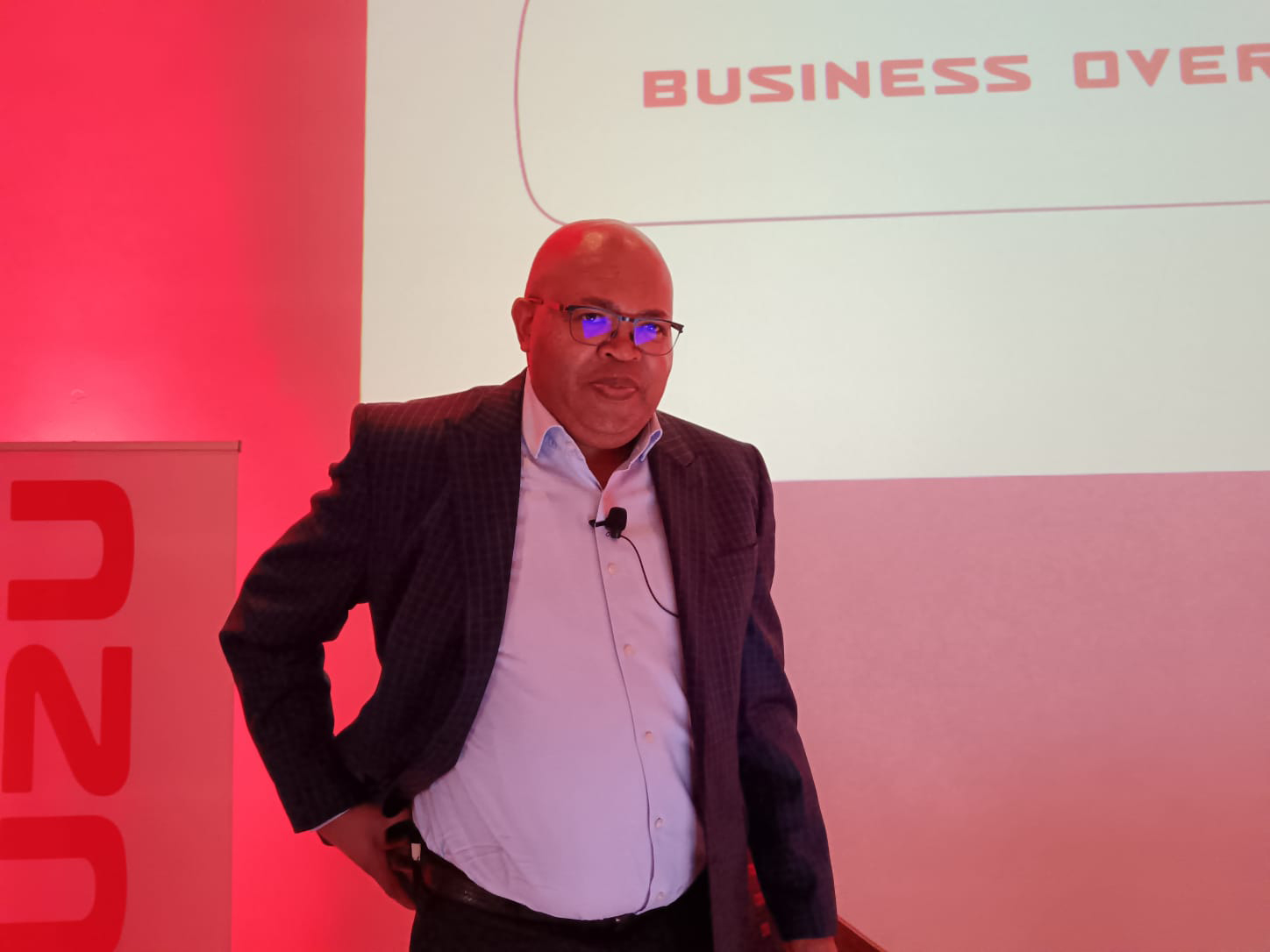Isuzu Trucks celebrates market leadership
Isuzu Trucks celebrates market leadership
An 11-year reign as the cab-over-chassis top seller in both the medium and heavy commercial vehicle segments of the South African market is a significant achievement. Isuzu Trucks, writes COLIN WINDELL, is consequently looking to keep the momentum and capitalise on its success.
“This will be a year of consolidation and building on our customer service experience,” says Craig Uren, senior vice-president revenue generation at Isuzu Trucks, noting that while the commercial vehicle market is still finding its feet post-Covid, total volumes were slightly up last year amidst a wealth of challenges.
“The industry and its customers have been challenged every year for some time, going from the microchip shortages through loadshedding to the recent ports congestion crisis. All of these, one on top of the other, make it very difficult for everyone,” Uren continues.
It is also quite easy to misconstrue some of the numbers. “The 21% increase in extra-heavy commercial vehicle sales last year was not entirely a sign of the economy heading back to normality. Instead, it goes straight to the failure of Transnet and rail freight operations. There are also still some operators doing critical refleeting, as opposed to new customers joining the market,” Uren points out.
He says the trucking industry needs momentum to survive. “Last year, however, the handbrake went on and small business operators especially were under huge pressure. They are the ones battling to renew the truck, or trucks, which are their livelihood,” he reveals.
“We are immensely proud of this achievement and grateful for the support of our valued customers, dealerships, and partners, who have played a crucial role in our continued success,” says Uren. “These results reinforce our dedication to providing high-quality, innovative solutions. Isuzu Trucks remains committed to setting industry standards and driving the future of commercial transportation.”
As far as the future is concerned, Uren explains that Isuzu will be active in all forms of alternative propulsion, but the main thing driving Isuzu’s solutions will be that which is most effective for the consumer – something that is likely to vary considerably from country to country.
“We are happy to be part of the process accelerating the future of transport,” he says, “but it is something that has to be done responsibly and not just for political gain.”


To that end, Uren points to the fact that Isuzu already has lots of Euro 5 trucks on the road (while South Africa is still officially a Euro 2 market), adding that some customers in Gauteng are using CNG gas. Isuzu will also shortly trial dual-fuel vehicles that operate on a combination of diesel and gas.
“Essentially, nothing is off the table, and it all comes down to providing value-added services and options for our customers,” Uren elaborates.
Looking at a broader picture, CEO Billy Tom says African business in the auto industry has grown by 92% in 2023 versus 2022, with several African countries trading with each other, while South Africa still only achieved 15% growth over the same period.
“There are a lot of people from outside Africa who are coming in and eating our lunch,” he says. “We have to protect and grow the industry within this country and inside Africa and do more to trade with ourselves. However, the challenges Craig (Uren) spoke about are very real and the impact on business is massive.
“Loadshedding meant Isuzu had to invest massively in generators, but the plant works on a ‘just-in-time’ supply process and many of our suppliers simply cannot afford the huge investment in industrial generation. So, even though we could keep the plant running, when the parts stock runs out, we have to shut down,” Tom continues.
“Parts supply is even more of a challenge and there is no way we can mitigate against the backlog at the ports,” he adds. “We have had to reroute some shipments to Durban and then truck them back down to Gqeberha, adding additional cost pressures to our operation.”
In many ways, 2024 is a bizarre year, with some 57 countries and around one-sixth of the world’s population involved in general elections – not least of which is South Africa.
“With this being an election year, I do not foresee too much changing in terms of the motor industry,” says Tom from his dual perspective as Isuzu CEO and president of naamsa, the National Association of Automotive Manufacturers of Southern Africa. “I am also not sure whether, if we do end up with a coalition government, it will be able to effect and implement change quickly enough.”
In this regard, absolute clarity and direction regarding battery electric vehicles and the establishment of a battery manufacturing facility that will service all the automakers will be critical to the ongoing viability and sustainability of the motor industry in South Africa. Tom says local companies desperately need this facility in order to plan ahead for the manufacture of battery vehicles or, at least, hybrid power trains.
“The auto industry in South Africa celebrates its centenary this year and is likely to see more changes in one year than it has in the past 100 years. We want to make this industry attractive to investors,” he stresses.
Tom also highlights the skills shortage in the country, pointing out that those skills need to be imported, albeit in conjunction with accelerated and expanded training programmes within our borders.
“We have a responsibility to society,” asserts Uren. “Governments may come and go but business is a long-term thing, and it is important we do not lose sight of our moral responsibilities.”
Looking at Isuzu’s numbers for 2023
Medium commercial vehicle segment:
• Total volume for 2023: 1,632 units
• Market share for 2023: 30.8%
Heavy commercial vehicle segment:
• Total volume for 2023: 1,160 units
• Market share for 2023: 21.2%, reflecting a notable 0.7% increase from 20.5% in 2022
Published by
Focus on Transport
focusmagsa




